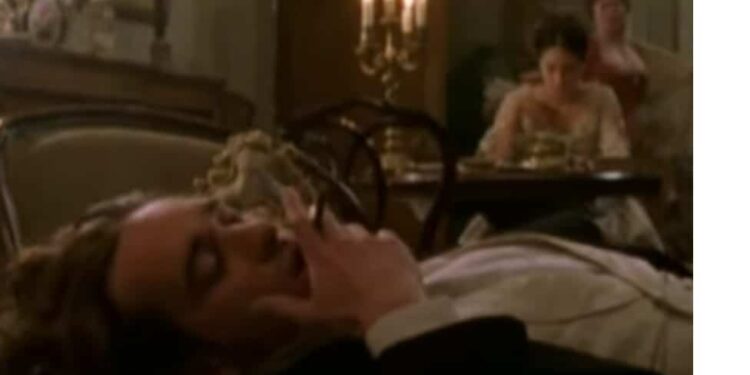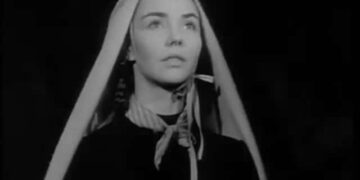‘The Way We Live Now’ is a compelling novel written by Anthony Trollope, first published in 1875. This satirical masterpiece takes a critical look at Victorian society, greed, and corruption. In this article, we will delve into a detailed book summary of ‘The Way We Live Now’ and explore the acclaimed TV adaptation by David Yates and Andrew Davies. Whether you’re a fan of the novel or the TV series, this article will provide you with a comprehensive understanding of the story and its various adaptations.
A Concise Book Summary of ‘The Way We Live Now’
‘The Way We Live Now’ revolves around the character of Augustus Melmotte, a wealthy and enigmatic financier who arrives in London with the aim of gaining social acceptance and amassing even more wealth. The novel explores the corrupt and manipulative practices of Melmotte as he navigates the high society of Victorian England. Trollope masterfully weaves together multiple plotlines, including love affairs, political ambitions, and financial scandals, to create a rich and intricate narrative.
One of the central themes of the novel is the destructive power of greed. Trollope portrays a society where individuals are willing to compromise their integrity and exploit others for personal gain. Through his vivid and engaging characters, he exposes the hypocrisy and moral decay that permeate the upper echelons of Victorian society. ‘The Way We Live Now’ serves as a scathing critique of the greed-driven culture that was prevalent during that era.
The David Yates and Andrew Davies TV Adaptation: A Comprehensive Summary
The TV adaptation of ‘The Way We Live Now’ by David Yates and Andrew Davies brings Trollope’s story to life on the small screen. The series faithfully captures the essence of the novel, presenting the intricate plotlines and complex characters in a visually stunning manner. Yates and Davies skillfully adapt the story to fit the medium of television, maintaining the essence of Trollope’s work while adding their own unique touches.
The casting for the TV adaptation is impeccable, with standout performances by the actors portraying Augustus Melmotte and Sir Felix Carbury. Their portrayal of these morally ambiguous characters is both captivating and nuanced. The series also features a stellar ensemble cast, including notable guest stars who bring depth and authenticity to their respective roles.
The TV adaptation successfully captures the opulence and grandeur of Victorian England, with lavish sets and costume design that transport viewers back in time. The attention to detail is commendable, and every aspect of the production contributes to the immersive experience of watching ‘The Way We Live Now’ on screen.
The Setting Timeline: Where and When ‘The Way We Live Now’ Takes Place
‘The Way We Live Now’ is set in Victorian England during the late 19th century. The story primarily takes place in London, the bustling capital of the British Empire. Trollope vividly describes the social hierarchy, the opulent mansions, and the bustling streets of the city, giving readers a glimpse into the vibrant and ever-changing landscape of Victorian London.
The timeline of the novel spans several years, allowing readers to witness the evolution of the characters and their relationships over time. From the initial introduction of Augustus Melmotte to the dramatic climax, the story unfolds against the backdrop of a rapidly changing society. Trollope’s attention to detail and historical accuracy make the setting of ‘The Way We Live Now’ come alive, immersing readers in the world of Victorian England.
Who’s Who: Main Characters and Guest Stars
‘The Way We Live Now’ features a diverse cast of characters, each with their own motivations and desires. At the center of the story is Augustus Melmotte, a charismatic and cunning financier who becomes the focal point of the upper-class society. His daughter, Marie Melmotte, is a young woman torn between duty and love. Other notable characters include Sir Felix Carbury, a charming but morally bankrupt aristocrat, and Hetta Carbury, a strong-willed woman who navigates the complexities of love and societal expectations.
The TV adaptation of ‘The Way We Live Now’ boasts an impressive ensemble cast. The actors portraying the main characters bring depth and complexity to their roles, capturing the essence of Trollope’s vision. Additionally, the series features notable guest stars who make memorable appearances, further enhancing the storytelling. The combination of talented actors and well-developed characters makes ‘The Way We Live Now’ a captivating viewing experience.
Memorable Quotes from ‘The Way We Live Now’
‘The Way We Live Now’ is replete with memorable quotes that encapsulate the themes and messages of the novel. Here are a few notable quotes that highlight the wit and social commentary of Trollope’s writing:
- “He was like a man who had put on full armor to attack an enemy and then, when the enemy was found, had discovered that he had left his sword and spear at home.” – Anthony Trollope
- “It is difficult for a woman to define her feelings in a language which is chiefly made by men to express theirs.” – Anthony Trollope
- “I do not know that anything can be more difficult than to dine abroad, unless it be to dine at home.” – Anthony Trollope
These quotes offer a glimpse into the sharp observations and astute social commentary that permeate ‘The Way We Live Now’. Trollope’s writing is both humorous and thought-provoking, providing readers with a deeper understanding of the characters and the society they inhabit.
The Soundtrack by Nicholas Hooper: A Review
The soundtrack of ‘The Way We Live Now’, composed by Nicholas Hooper, perfectly complements the atmosphere and emotions of the story. Hooper’s score captures the essence of Victorian England, incorporating classical elements with a modern twist. The music evokes a range of emotions, from the grandeur and opulence of high society to the inner turmoil of the characters.
Hooper’s use of orchestral arrangements and melodic motifs adds depth and texture to the TV series. The soundtrack seamlessly intertwines with the narrative, enhancing the viewer’s emotional connection to the story. Whether it’s the haunting melodies during moments of suspense or the uplifting themes that accompany moments of triumph, the music of ‘The Way We Live Now’ enriches the viewing experience.
Cosplaying ‘The Way We Live Now’: Dressing Like Augustus Melmotte and Sir Felix Carbury
If you’re a fan of ‘The Way We Live Now’ and want to bring the characters to life, why not try cosplaying as Augustus Melmotte or Sir Felix Carbury? These two characters embody the contrasting aspects of Victorian society, and their distinctive styles can be recreated with a touch of creativity and attention to detail.
To cosplay as Augustus Melmotte, focus on elegant and opulent clothing. Choose a tailored suit in rich fabrics such as velvet or brocade. Pair it with a top hat and a walking cane for added authenticity. Don’t forget to accessorize with lavish jewelry, such as a gold pocket watch or a statement ring. To complete the look, style your hair with a side parting and slick it back for a polished appearance.
For a Sir Felix Carbury-inspired cosplay, channel the dashing yet morally ambiguous aristocrat. Opt for a tailored waistcoat in a muted color, paired with a crisp white shirt and a patterned cravat. Add a tailored blazer and trousers in coordinating shades for a sophisticated look. Don’t forget to incorporate accessories like a pocket square and a gold tie pin. Style your hair with a slight tousle for a more relaxed and carefree vibe.
Anthony Trollope: A Brief Biography and His 5 Best Works
Anthony Trollope, born in 1815, was a renowned Victorian novelist known for his insightful social commentary and realistic portrayals of characters. Despite facing initial rejection from publishers, Trollope persevered and went on to become one of the most prolific and respected writers of his time. Here are five of his best works:
- ‘Barchester Towers’: This novel is the second in Trollope’s Chronicles of Barsetshire series and is considered one of his most beloved works. It explores the power struggles and intrigues within the clergy of the fictional cathedral city of Barchester.
- ‘The Warden’: The first novel in the Chronicles of Barsetshire series, ‘The Warden’ delves into the moral dilemma faced by Reverend Septimus Harding, the warden of Hiram’s Hospital. It addresses themes of social responsibility and the conflict between duty and personal ethics.
- ‘The Way We Live Now’: As the primary focus of this article, ‘The Way We Live Now’ is a standout work in Trollope’s repertoire. Its incisive critique of Victorian society and exploration of greed and corruption make it a must-read for fans of his writing.
- ‘Doctor Thorne’: This novel is the third installment in the Chronicles of Barsetshire series and follows the romantic entanglements of Mary Thorne, an illegitimate child adopted by the eponymous doctor. It examines themes of class, love, and societal expectations.
- ‘Can You Forgive Her?’: The first novel in Trollope’s Palliser series, ‘Can You Forgive Her?’ explores the choices and dilemmas faced by its female protagonist, Alice Vavasor. The novel delves into themes of love, marriage, and the role of women in Victorian society.
These five works represent the breadth and depth of Trollope’s writing, showcasing his ability to capture the complexities and nuances of human nature.
The Dynamic Duo: 5 Notable Works by David Yates and Andrew Davies
David Yates and Andrew Davies are the creative minds behind the acclaimed TV adaptation of ‘The Way We Live Now’. Their collaboration has resulted in compelling and visually stunning adaptations of numerous literary works. Here are five notable works by this dynamic duo:
- ‘Bleak House’: Yates and Davies collaborated on this TV adaptation of Charles Dickens’ classic novel. The series received critical acclaim for its faithful portrayal of the complex narrative and its visually striking cinematography.
- ‘War & Peace’: This epic TV adaptation of Leo Tolstoy’s masterpiece showcased Yates and Davies’ ability to bring historical sagas to life. The series received praise for its stunning visuals, strong performances, and compelling storytelling.
- ‘Pride and Prejudice’: Yates and Davies created a memorable adaptation of Jane Austen’s beloved novel. The series captivated audiences with its faithful portrayal of the characters and its ability to capture the wit and charm of Austen’s writing.
- ‘Emma’: This TV adaptation of Jane Austen’s novel showcased Yates and Davies’ talent for bringing period dramas to life. The series received acclaim for its attention to detail, strong performances, and its ability to capture the nuances of Austen’s characters.
- ‘Little Dorrit’: Yates and Davies collaborated on this TV adaptation of Charles Dickens’ novel. The series received praise for its atmospheric portrayal of Victorian London and its exploration of social class and inequality.
These five notable works by David Yates and Andrew Davies demonstrate their skill in adapting classic literature for the screen, capturing the essence of the original works while adding their own unique touches.
If You Loved ‘The Way We Live Now’: 10 Similar Movies, TV Shows, and Books
If you enjoyed ‘The Way We Live Now’ and are looking for similar movies, TV shows, and books, here are ten recommendations that capture the themes and atmosphere of Trollope’s novel:
- ‘Downton Abbey’: This critically acclaimed TV series explores the lives of the aristocratic Crawley family and their servants in early 20th-century England. It delves into the social hierarchy, love affairs, and scandals of the time.
- ‘Gosford Park’: Directed by Robert Altman, this film is a murder mystery set in an English country house in the 1930s. It examines the dynamics between the wealthy guests and their servants, showcasing the class divide and societal expectations.
- ‘The Age of Innocence’: Directed by Martin Scorsese, this film is an adaptation of Edith Wharton’s novel. It explores the rigid social mores of 19th-century New York high society and the sacrifices individuals make to conform to societal expectations.
- ‘North and South’: This TV miniseries, based on Elizabeth Gaskell’s novel, tells the story of Margaret Hale, a young woman who moves from the tranquil countryside to the industrialized North of England. It delves into the social and economic disparities of Victorian society.
- ‘The House of Mirth’: Based on Edith Wharton’s novel, this film follows the tragic story of Lily Bart, a socialite in early 20th-century New York. It explores themes of greed, betrayal, and the constraints placed upon women in high society.
- ‘Bleak House’: This TV adaptation of Charles Dickens’ novel is a sweeping saga that intertwines multiple plotlines, including a legal battle and a mysterious inheritance. It explores the impact of corruption and greed on society.
- ‘Middlemarch’: Based on George Eliot’s novel, this TV series delves into the lives of the inhabitants of the fictional town of Middlemarch. It examines the complexities of relationships, societal expectations, and the pursuit of individual desires.
- ‘The Age of Innocence’: Edith Wharton’s novel, upon which the film is based, is a must-read for fans of ‘The Way We Live Now’. It offers a vivid portrayal of the social constraints and moral dilemmas faced by individuals in high society.
- ‘The Forsyte Saga’: This TV series, based on John Galsworthy’s novels, follows the lives of the wealthy Forsyte family over several generations. It examines issues of love, marriage, and the changing social landscape of early 20th-century England.
- ‘The Great Gatsby’: F. Scott Fitzgerald’s iconic novel provides a glimpse into the excesses and disillusionment of the Jazz Age. It explores themes of wealth, love, and the pursuit of the American Dream.
‘The Way We Live Now’ Book Club: Discussion Questions
Are you part of a book club or planning to start one? If so, ‘The Way We Live Now’ is an excellent choice for stimulating discussions and thought-provoking conversations. Here are some discussion questions to get the ball rolling:
- How does Trollope’s portrayal of society in ‘The Way We Live Now’ resonate with our present times?
- Which character did you find the most compelling, and why?
- What themes and motifs did you notice throughout the novel, and how do they contribute to the overall message?
- Discuss the role of women in the Victorian era as depicted in the book.
- Were there any aspects of the book that surprised you or challenged your preconceived notions?
Feel free to use these questions as a starting point and explore further avenues of discussion. ‘The Way We Live Now’ offers a myriad of topics to delve into, ensuring lively and engaging book club meetings.
Parent’s Guide to ‘The Way We Live Now’
‘The Way We Live Now’ is a thought-provoking novel that tackles complex themes and explores the darker aspects of society. While it may not be suitable for younger readers, older teens and adults can appreciate the depth and richness of Trollope’s writing. However, due to some mature content and themes, it is advisable for parents to read the book before deciding if it is appropriate for their child.
The novel contains instances of adultery, financial fraud, and social commentary that may require parental guidance for younger readers. Additionally, the book delves into the complexities of human relationships, including love triangles and manipulation. As such, parents should consider the emotional maturity and understanding of their child before recommending ‘The Way We Live Now.’
Intriguing Tidbits About ‘The Way We Live Now’
‘The Way We Live Now’ is replete with fascinating details and hidden gems that add depth to the reading experience. Here are some intriguing tidbits about the novel:
- The book’s title is derived from a line in the novel itself, spoken by the character Hetta Carbury.
- Trollope drew inspiration from real-life financial scandals of the time, infusing the novel with a sense of realism.
- The character of Augustus Melmotte is believed to have been inspired by real-life financier and fraudster, John Sadleir.
- Trollope initially faced criticism for his portrayal of the corrupt society, but the novel is now regarded as one of his finest works.
- ‘The Way We Live Now’ explores the themes of identity, morality, and the pursuit of wealth, making it highly relevant even in contemporary times.
These tidbits only scratch the surface of the depth and intricacy of ‘The Way We Live Now.’ As you delve further into the novel, be prepared to uncover even more fascinating details that will enrich your reading experience.
Buying Guide & Gift Ideas for Fans of ‘The Way We Live Now’
If you or someone you know is a fan of ‘The Way We Live Now,’ here are some buying guide and gift ideas to indulge in the love for this literary classic:
- ‘The Way We Live Now’ – Deluxe Edition: Treat yourself or a fellow fan to a beautifully bound, collector’s edition of the novel.
- ‘The Way We Live Now’ – Criterion Collection DVD: Relive the magic of the TV adaptation with this meticulously curated DVD set, complete with bonus features and behind-the-scenes insights.
- ‘The Way We Live Now’ – Soundtrack by Nicholas Hooper: Immerse yourself in the atmospheric sounds of the TV series with the hauntingly beautiful soundtrack composed by Nicholas Hooper.
- ‘The Way We Live Now’ – Augustus Melmotte Cosplay Dress: Show your love for the enigmatic character of Augustus Melmotte with a stunning cosplay dress inspired by the Victorian era.
- Anthony Trollope Box Set: Expand your literary collection with a box set containing five of Trollope’s best works, including ‘The Way We Live Now.’
These gift ideas are sure to delight any fan of ‘The Way We Live Now’ and provide a deeper connection with the novel and its adaptation.
Conclusion
‘The Way We Live Now’ is a literary masterpiece that continues to captivate readers and viewers alike. Anthony Trollope’s insightful exploration of society’s flaws and the human condition remains as relevant today as it was in the late 19th century. And thanks to the brilliant adaptation by David Yates and Andrew Davies, we can experience the story in a visually stunning and emotionally resonant way.
So, whether you’re diving into the novel or immersing yourself in the TV adaptation, ‘The Way We Live Now’ promises a thought-provoking and immersive journey into a world filled with ambition, greed, and the complexities of human nature. Let the words of Trollope and the visual storytelling of Yates and Davies transport you to a time and place where the way we live now echoes through the ages.
If you’re ready to embark on this literary and visual journey into ‘The Way We Live Now,’ grab a copy of the book, gather your friends for a book club discussion, or indulge in the TV series. Immerse yourself in the world of Augustus Melmotte and his contemporaries, and discover the timeless themes that continue to resonate with us today.














